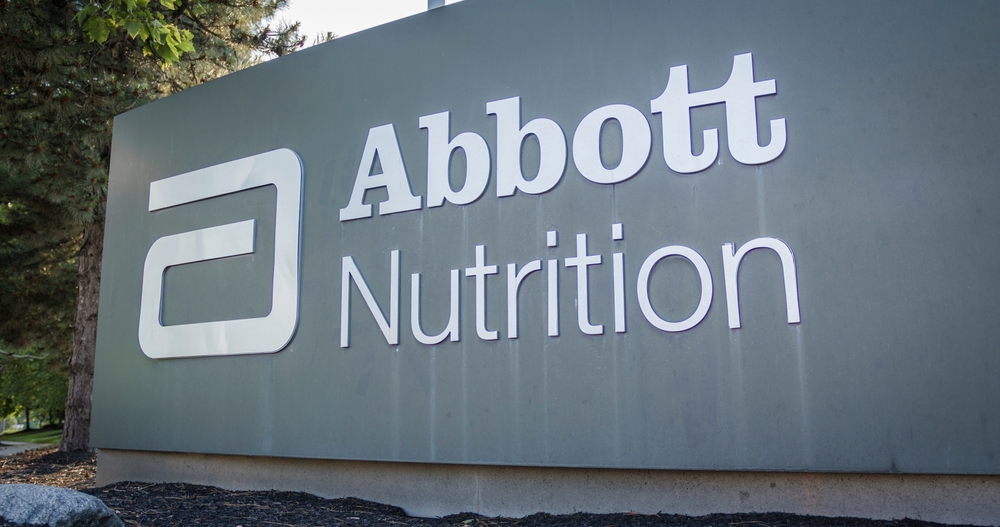When becoming parents, you are tasked with making many decisions. One important decision is determining how to feed your baby. Some parents select breastfeeding, while others choose to provide their baby formula. Due to baby formula recalls, shortages, lawsuits, and news about risks related to baby formulas, the decision-making process may be even more difficult for new parents.
One particular baby formula manufacturer, Abbott Nutrition, seems to be front and center when it comes to the recent baby formula issues and is facing various lawsuits.
In August, a mass tort multidistrict litigation (MDL) was established to handle lawsuits that allege babies were sickened by formula made at an Abbott Nutrition facility in Sturgis, Michigan. Multidistrict litigation allows civil lawsuits from different federal district courts to be transferred and consolidated into one lawsuit before one judge. Eighteen cases that allege babies were sickened after consuming infant formula were transferred to U.S. District Judge Kennelly in Chicago. Seventeen of the 18 cases are proposed class action lawsuits. When reached for comment about this MDL, Abbott shared that there is no evidence it ever sold any contaminated formula.
This MDL contains personal injury and wrongful death claims. There are also claims within this MDL on behalf of parents and guardians whose babies consumed dry infant formula manufactured at the Abbott plant in Michigan but did not get sick. These consumers share that they paid a premium for infant formula made by Abbott. The parents and guardians would not have paid a premium for this formula if they knew dry baby formula could be contaminated with bacteria. It is alleged that Similac, Alimentum and EleCare branded dry formula was tainted with Cronobacter sakazakii bacteria.
NEC Baby Formula Lawsuits
Earlier this year, another federal MDL was created. It consists of lawsuits that allege Abbott’s Similac brand formula caused infants born prematurely to become ill or die from necrotizing enterocolitis (NEC). NEC is a serious gastrointestinal problem that mainly affects premature babies. It can cause intestinal tissue to die. When intestinal tissue dies, the baby can no longer absorb nutrients.
The NEC baby formula lawsuits claim the baby formula manufacturers knew the risks of NEC in premature infants and still promoted their formulas as a suitable alternative to breast milk. The lawsuits also allege that product safety warnings were confusing and that the brands spend billions of dollars advertising their formulas as a superior substitute for human milk. Abbott has denied the allegations, continuing to advocate that their products increase the likelihood of premature infants’ opportunity for survival.
Abbott has tried to use a legal loophole known as “snap removal” with the NEC baby formula lawsuits. In this legal maneuver, Abbott Nutrition wanted to keep lawsuits in federal court rather than litigate in state court. Chief Judge Rebecca Pallmeyer of the Northern District of Illinois is overseeing the MDL. Judge Pallmeyer rejected the motion asking for a snap removal, ruling that it was “absurd.” Large companies, like Abbott, may prefer to litigate lawsuits in federal courts. Often federal courts are perceived to be less plaintiff-friendly than state-level courts.
In addition to Abbott, Mead Johnson Nutrition, the manufacturer of Enfamil, is also facing NEC lawsuits.
Proposed Abbott Shareholder Class Action Lawsuit
On August 31, a shareholder of Abbott Laboratories sued the company and four executives, alleging that Abbott hid information about safety concerns related to the infant formula. This allegation includes claims that the executives and company defrauded investors by hiding information related to safety concerns.
A Florida pension fund filed this potential class action lawsuit in Chicago federal court. The lawsuit seeks damages for investors who purchased Abbott shares between Feb. 19, 2021, and June 8, 2022. According to the pension fund, Abbott knew of the safety concerns from a whistleblower in 2021 but failed to disclose the problems until the FDA announced an investigation into Cronabacter infections in early 2022.
Other Baby Formula Manufacturers Face Cronobacter Contamination
Abbott Nutrition is not alone in having difficulties with Cronobacter bacteria. FDA investigators have inspected other baby formula manufacturers where Cronobacter has also been discovered.
According to a report by ABC News, in 2021, FDA investigators said that Mead Johnson records indicated Cronobacter was found in one of their Evansville, Indiana plant's rooms and that the area was subsequently sanitized. A plant operator was observed not washing his hands between glove changes and not changing gloves between touching non-food and food contact surfaces.
Also, in 2017, Cronobacter was found at the Mead Johnson plant in Zeeland, Michigan. A corrective plan was put into place to address the Cronobacter problems. In a statement to ABC News, Reckitt, a division of Mead Johnson, maintained that the company manufactures their formula "using the highest standards for quality and safety," adding that whenever the FDA finds an issue, they "immediately develop and implement an action plan to address the issue."
Nestle Nutrition’s Gateway facility in Wisconsin manufactures infant formula under the Gerber brand. During an August 2021 inspection, Cronobacter was detected in samples taken during the infant formula manufacturing process. In addition to finding this bacteria, debris was found on the floor, and "dirty scoops used during the previous production day" were stored on a stainless steel work table in a raw material room.
In August 2019, the FDA investigators determined that samples at PBM Nutritionals, a division of Perrigo, which makes private-label infant formula for stores like Amazon and Walmart, had tested positive for Cronobacter. PBM Nutritionals shared documents regarding their safety and monitoring processes, highlighting the cause of the Cronobacter bacteria and solutions to reducing the potential for contamination.
While baby formula lawsuits work their way through the justice system and shortages continue, families still need to feed their infants with baby formula. However, one can hope that understanding the risks associated with powdered baby formula and those seeking justice for injured formula-fed babies will ensure that these risks can be reduced.










